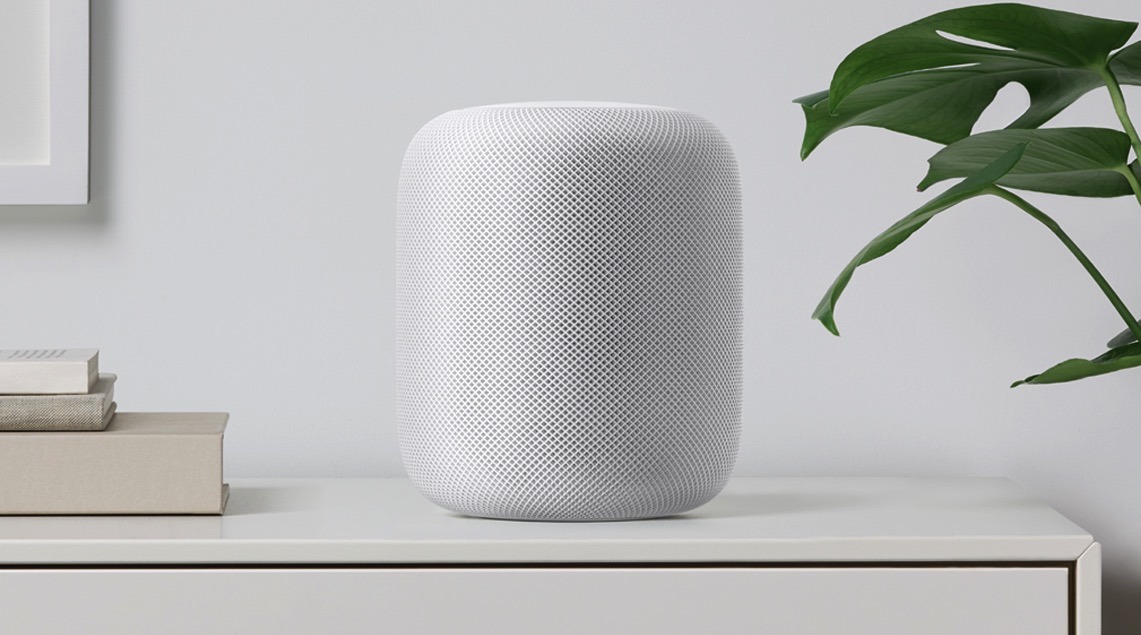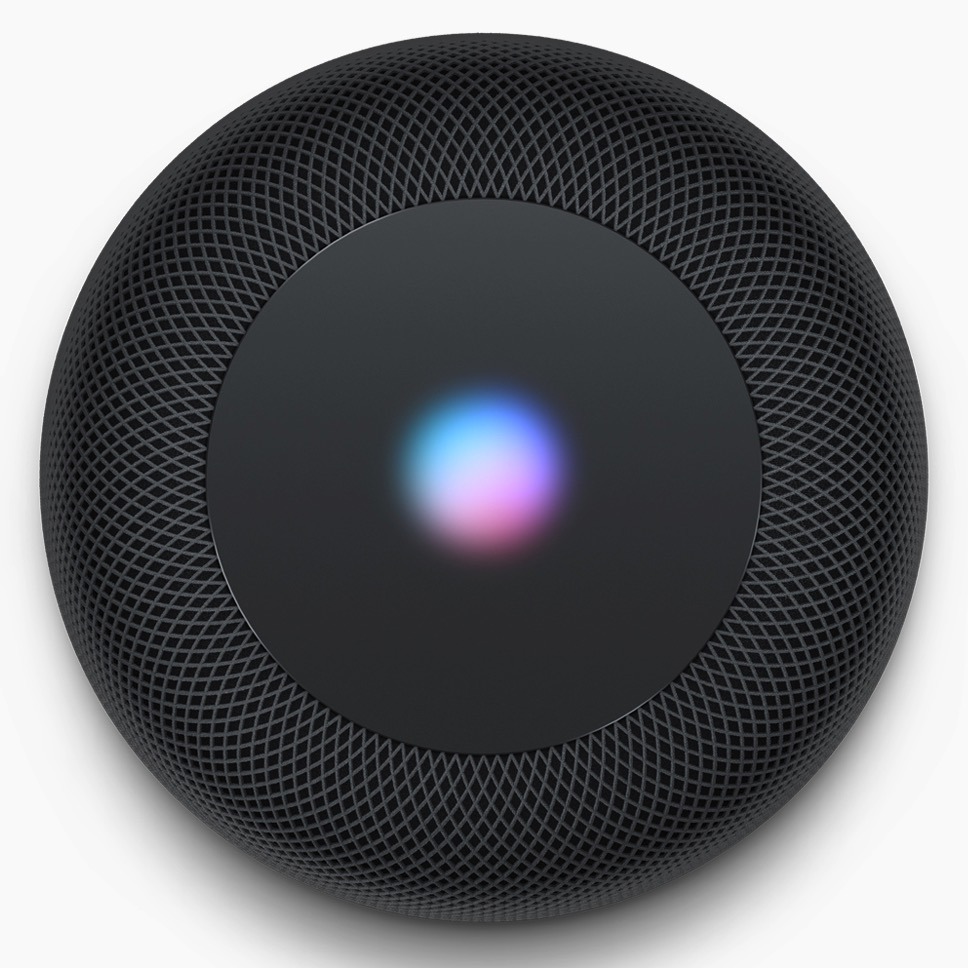Calling it a "breakthrough home speaker," Apple on Monday revealed the new Siri home speaker dubbed HomePod, a device the company hopes will reinvent music at home just like the iPod reinvented music in your pocket. It will cost $349 and ship this December.
Apple has focused on music in promoting the HomePod, emphasizing the high-quality audio offered by the device. But it's also an Amazon Echo competitor, and can respond to vocal queries about news, unit conversion, messages, sports, stocks, translations, general knowledge and much more.
HomePod also works with HomeKit, allowing users to control their accessories without having an iPhone nearby. HomeKit scenes are also compatible with HomePod.
The speaker accessory is powered by an Apple A8 chip featuring realtime acoustic modeling, audio beam-forming, and multi-channel echo cancelation.
In pitching the HomePod, Apple marketing chief Phil Schiller said companies like Sonos are focused on sound quality, like Amazon's Echo is smart without the same sound quality.
Apple's team has been at work for years to create a speaker that not only sounds good, but is also smart.
With a Mac Pro-like cylindrical design, the HomePod is under 7 inches tall in a 3D mesh acoustic fabric. In addition to the A8 chip, it has 7 tweeters and a dynamic modeling subwoofer.
HomePod recognizes the vocals in audio and can beam form direct them for superior sound. When you set up two, they automatically recognize each other.
HomePod also turns Siri into a "musicologist," integrating tightly with Apple Music and accessing tracks from the cloud. HomePod will know your playlists, artists and tracks you love, and utilize six microphones to listen for "Hey Siri" commands to respond.
Once activated, the Siri waveform appears on the top of the device, and then it plays the music the user has requested. It also handles prompts such as "who is playing the drums on this track?" or "play more songs that sound like this," or "what was the top song on March 13 in 2005?"
 Neil Hughes
Neil Hughes









 Charles Martin
Charles Martin
 Christine McKee
Christine McKee
 Wesley Hilliard
Wesley Hilliard
 Malcolm Owen
Malcolm Owen
 Andrew Orr
Andrew Orr
 William Gallagher
William Gallagher
 Sponsored Content
Sponsored Content








43 Comments
If anyone here is at WWDC, could you check and see if it has some sort of audio line-in?
Sonos' twitter feed is full of apologists "As soon as I get that Echo support..."
This is priced right at $349. That's right there with a Sonos Play3 (which sounds just 'ok') and same price as a Denon HEOS 5. Neither speaker has smart features and relay on 3rd party.
I think it looks good. It should disappear in the home. I'm betting that it sounds better that 90% of its competitors. I called Airplay 2 and speaker support for HomeKit months ago. Both will breath a lot of life into Apple based music. Now we need an iTunes refresh.
Guessing that a larger Siri reveal will happen upon iPhone launch.
According to Apple's website its totally wireless. Thats why they called it a "wireless" speaker, not a wired speaker.
question: as discussed on here before, saying Hey Siri will invoke multiple hardware activations....no mention of this in keynote?
If no line-in, that's a pity. A lot of folks will be weighing a Sonos vs this; Sonos will do their TV audio without latency. I'm sure this'll work with AppleTV, but that's useless for other boxes, Playstations and Xboxen, etc.
Regardless, I'm one of the rare fans of the Apple HiFi, nice to see it live on in some kind of form.